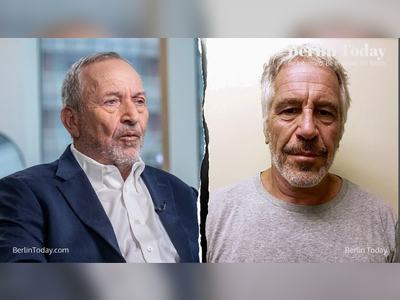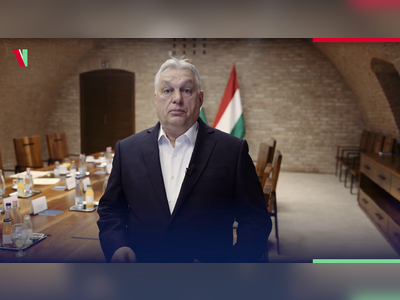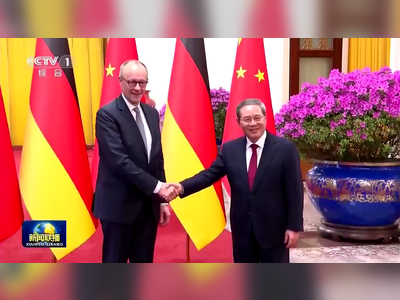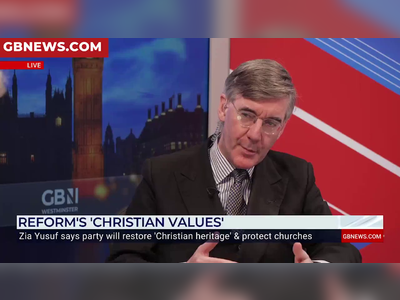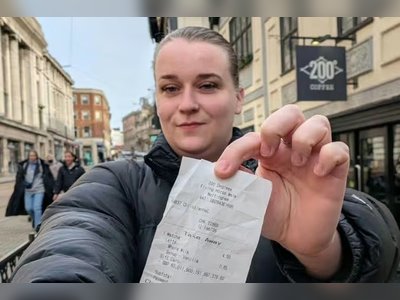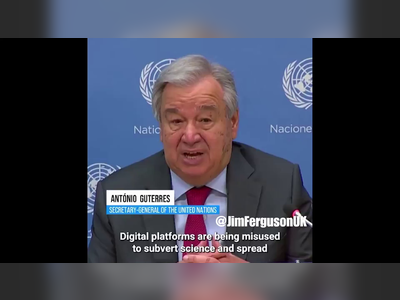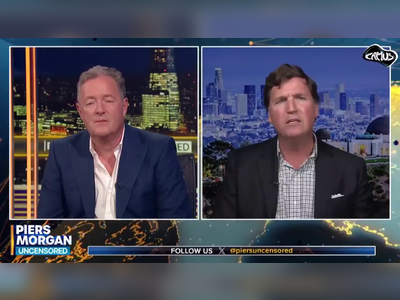Sarkozy Faces Another Trial Over Alleged Libyan Campaign Financing
The former French president confronts serious allegations amidst claims of financial support from Gaddafi.
In a case that echoes the international intrigues of an earlier political era, former French President Nicolas Sarkozy is once again at the center of a high-profile legal battle.
Starting this Monday, Sarkozy will stand trial in Paris over accusations that he accepted illicit funding from the late Libyan dictator, Muammar Gaddafi, to bankroll his successful 2007 presidential campaign.
If convicted, Sarkozy could face up to 10 years in prison.
The trial comes shortly after the French supreme court confirmed a separate corruption charge against him, resulting in a one-year house arrest sentence.
Sarkozy, known for his assertive political style and having served as France's president from 2007 to 2012, has consistently denied the allegations, dismissing them as part of a broader conspiracy against him.
The case traces its roots back to a 2012 investigation by the French media outlet Mediapart, which published documents suggesting that Gaddafi had agreed to provide €50 million ($54.5 million) to aid Sarkozy’s presidential bid.
Although rumors were circulating as early as 2011, the claims gained more traction with the involvement of Ziad Takieddine, a Lebanese-French arms broker, who alleged that he facilitated the transfer of cash-filled suitcases from Libya to France.
Takieddine's statements are pivotal to the prosecution's case, although his credibility has been questioned after he retracted and later reaffirmed his accusations.
Reportedly, this retraction occurred while he was residing in Lebanon, where he remains after fleeing France due to a separate conviction linked to the Karachi affair, an unrelated arms dealing scandal.
Given Lebanon's non-extradition stance, Takieddine will be tried in absentia.
The aftermath of Sarkozy’s interactions with the Gaddafi regime also intersected with geopolitics.
As conflict erupted in Libya in 2011, Sarkozy played a significant role in promoting the NATO intervention against Gaddafi.
This move was followed by public complaints from Saif al-Islam Gaddafi, who accused Sarkozy of hypocrisy and demanded the return of the alleged Libyan funds.
Sarkozy is no stranger to the courtroom, having faced previous legal challenges.
In 2021, he was found guilty of overspending in his unsuccessful 2012 re-election campaign.
Throughout these legal hurdles, several of Sarkozy’s former associates have been implicated, including Claude Guéant and Brice Hortefeux, both of whom served as interior ministers during his administration, as well as Eric Woerth, a former Budget Minister now aligned with President Emmanuel Macron’s Renaissance Party.
All have publicly denied any wrongdoing.
As the trial proceeds, it shines a spotlight on the intricate dance between international diplomacy, campaign financing, and accountability—a narrative that continues to reverberate well beyond the French political sphere.
Starting this Monday, Sarkozy will stand trial in Paris over accusations that he accepted illicit funding from the late Libyan dictator, Muammar Gaddafi, to bankroll his successful 2007 presidential campaign.
If convicted, Sarkozy could face up to 10 years in prison.
The trial comes shortly after the French supreme court confirmed a separate corruption charge against him, resulting in a one-year house arrest sentence.
Sarkozy, known for his assertive political style and having served as France's president from 2007 to 2012, has consistently denied the allegations, dismissing them as part of a broader conspiracy against him.
The case traces its roots back to a 2012 investigation by the French media outlet Mediapart, which published documents suggesting that Gaddafi had agreed to provide €50 million ($54.5 million) to aid Sarkozy’s presidential bid.
Although rumors were circulating as early as 2011, the claims gained more traction with the involvement of Ziad Takieddine, a Lebanese-French arms broker, who alleged that he facilitated the transfer of cash-filled suitcases from Libya to France.
Takieddine's statements are pivotal to the prosecution's case, although his credibility has been questioned after he retracted and later reaffirmed his accusations.
Reportedly, this retraction occurred while he was residing in Lebanon, where he remains after fleeing France due to a separate conviction linked to the Karachi affair, an unrelated arms dealing scandal.
Given Lebanon's non-extradition stance, Takieddine will be tried in absentia.
The aftermath of Sarkozy’s interactions with the Gaddafi regime also intersected with geopolitics.
As conflict erupted in Libya in 2011, Sarkozy played a significant role in promoting the NATO intervention against Gaddafi.
This move was followed by public complaints from Saif al-Islam Gaddafi, who accused Sarkozy of hypocrisy and demanded the return of the alleged Libyan funds.
Sarkozy is no stranger to the courtroom, having faced previous legal challenges.
In 2021, he was found guilty of overspending in his unsuccessful 2012 re-election campaign.
Throughout these legal hurdles, several of Sarkozy’s former associates have been implicated, including Claude Guéant and Brice Hortefeux, both of whom served as interior ministers during his administration, as well as Eric Woerth, a former Budget Minister now aligned with President Emmanuel Macron’s Renaissance Party.
All have publicly denied any wrongdoing.
As the trial proceeds, it shines a spotlight on the intricate dance between international diplomacy, campaign financing, and accountability—a narrative that continues to reverberate well beyond the French political sphere.
Translation:
•
Translated by AI
AI Disclaimer: An advanced artificial intelligence (AI) system generated the content of this page on its own. This innovative technology conducts extensive research from a variety of reliable sources, performs rigorous fact-checking and verification, cleans up and balances biased or manipulated content, and presents a minimal factual summary that is just enough yet essential for you to function as an informed and educated citizen. Please keep in mind, however, that this system is an evolving technology, and as a result, the article may contain accidental inaccuracies or errors. We urge you to help us improve our site by reporting any inaccuracies you find using the "Contact Us" link at the bottom of this page. Your helpful feedback helps us improve our system and deliver more precise content. When you find an article of interest here, please look for the full and extensive coverage of this topic in traditional news sources, as they are written by professional journalists that we try to support, not replace. We appreciate your understanding and assistance.



